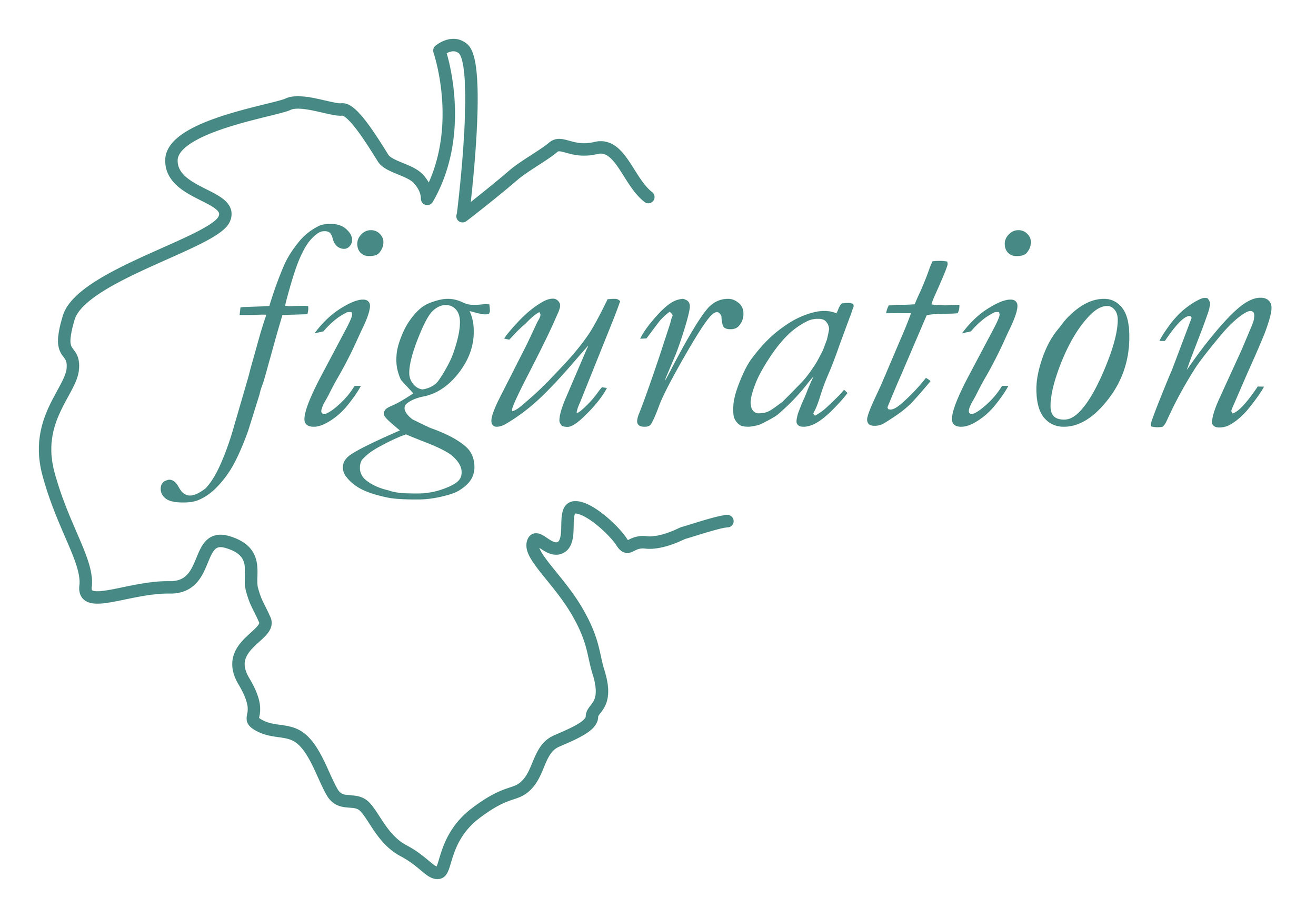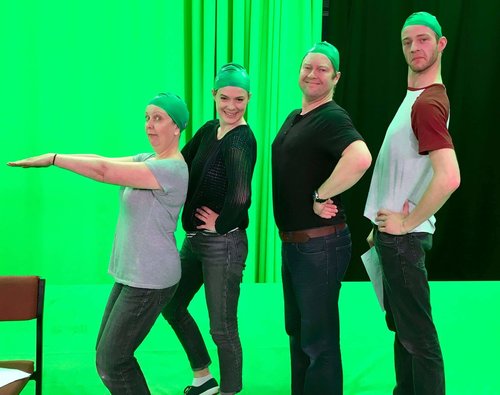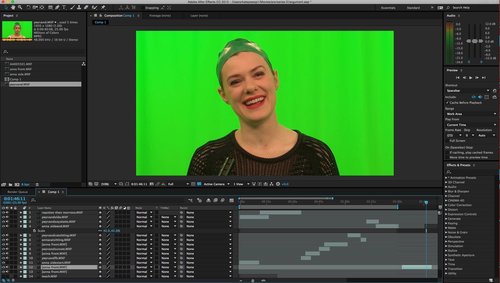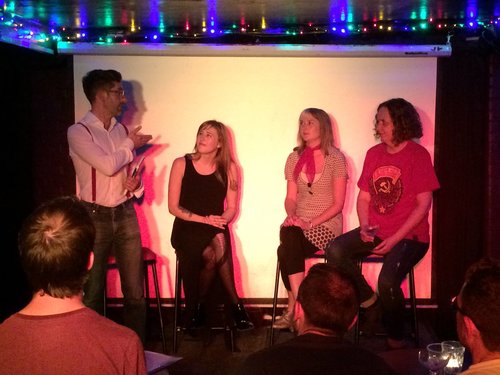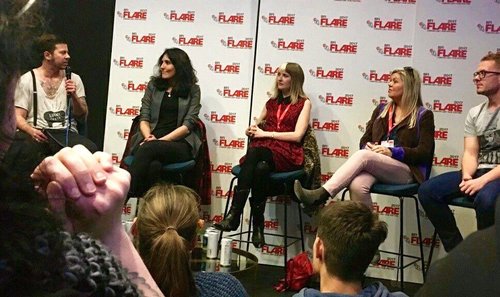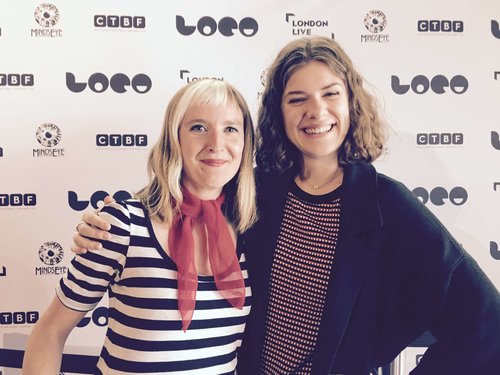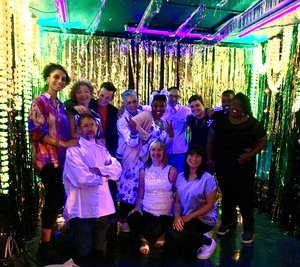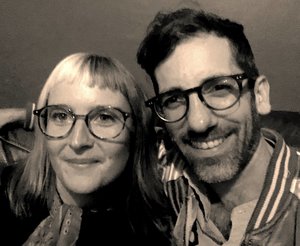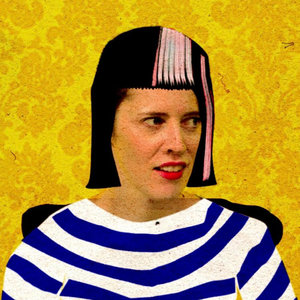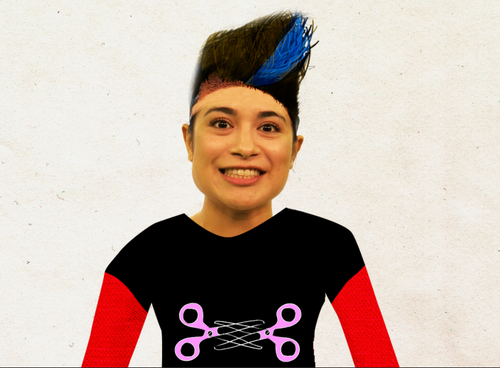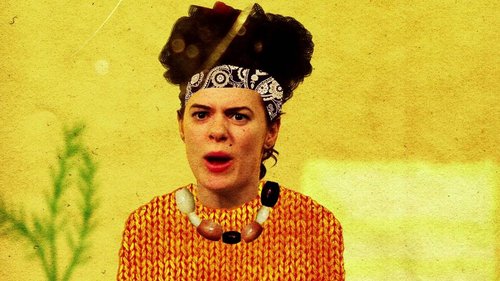Tales From Pussy Willow
Coming into the Station
This week saw the release of series two of the cult web series Tales From Pussy Willow, written, directed and animated by Kate Jessop. Leo Crane, who assisted on the animation, delves behind the scenes.
LC: What drove you to make Tales From Pussy Willow?
KJ: I like writing comedy as a way of processing the world and things that have happened to me. Although the series is funny it also addresses serious issues such as misogyny and catcalling. People have said they find watching some of the episodes quite painful but I'd like to think I'm holding a mirror up to society and calling people out. For example when I sent the Mansplainer [series 2 episode 2] script to Peyvand [Sadeghian] she was 'oh this has happened to me'. Although this episode and the Astronaut [series 2 episode 4] are exaggerated to a certain extent, it portrays how a lot of women are treated and their everyday experiences. It is quite horrifying when you hear from trans men who confirm your fears when they share that they are treated more favourably as a man, say in a professional context, than they were as a woman. A man is competent by default until proved otherwise and a woman is incompetent by default until proved otherwise. This is explored in the Astronaut episode where she's just come back from the first ever successful trip to Mars and the men in the press conference are trying to mansplain space travel to her. Smile [series 2 episode 3] addresses misogyny in a more absurdist way. I started to think about what if builders were actually feminist allies and said really beautiful insightful things about you instead of objectification.
LC: What has been your biggest challenge, technical or otherwise?
KJ: Making the series faced the usual challenges of creating ground-breaking new content on no budget. The first one was harder as I had nothing to compare it to as I was pioneering this technique of filming actors heads to be composited into animated bodies and worlds. I had vaguely worked with this technique on a music video years ago where I first got the idea of working with this process, but wanted to develop it further. So because it had never really been made before it was hard to explain to the actors what I was trying to achieve. Luckily it was the strength of the scripts that drew the actors in. Anna Maguire was the first person who said she wanted to be involved and has been in both series now and think that was based on an attraction to the humour and cultural commentary it puts forward.
With the second series it was much easier to recruit actors as I had something to show them and it had already had some success – Revry in LA picked it up for distribution and the episode Parents Chat has been nominated for a number of awards.
On a technical level masking out the hair was such a pain in the first series, in the second one I made the actors wear a green swimming cap I could key out afterwards and made them speak directly into camera so not to move their head about. I worked with the same DoP [Jeremy Clancy] who completely gets what I’m trying to do. We’re just learning as we’re going along I guess.
LC: Tell us a bit about Animation Girl Band – what kind of people does it take to make a project like this?
KJ: Animation Girl Band is my company name I work under when I work with a crew. Anyone who wants to work with me can be in my Animation Girl Band!
LC: What’s your dream for TFPW?
KJ: I’d just like to develop and expand it further as I think there are some important messages in there which seem to chime a chord with people. It would be great to get a silent producer involved. BBC 3 were sniffing around it at one point but a solid conclusion was never reached so I just made the second series anyway.
LC: What or who has influenced/inspired you?
KJ: Humour wise I was always influenced by Smack the Pony because I think that was the first time I’d seen the world portrayed through a female lens. TFPW is very much the world through a female lens. I also love the Mighty Boosh for the absurdist world that it creates. I’m also a big fan of Portlandia as both cultural commentary and absurdity. I love the fact that it’s the same two actors that play all the characters. This is similar to TFPW apart from I create different hairdo’s and outfits to fit on all the different characters. This was initially a practical issue in the respect that I couldn’t pay lots of different actors to play all the different roles so had to find a way to differentiate them all! But I like the fact that I’m working with lots of the same people each time, a bit like Wes Anderson always has the same cast but they play different roles in each of his different films.
LC: With TFPW, Queer Heroes, and other work, you’re becoming something of a queer animation pin-up. Who else should we be looking out for in this field today?
KJ: I’ve had this said to me before, I seem to have become the face of Queer Animation! I’d done Dog and Dear Domenico which were queer themed films but it was really the Love Works duology [Chariot Riders and Little Elephant] that seemed to have a lot of impact on the queer film scene. I think it’s because it was quite intersectional in the themes it addressed and animation can be a really handy tool for addressing difficult topics in a way live action sometimes can’t lend itself to. To be honest I don’t know, there’s still not a lot of queer animation being showcased in New Queer Cinema. I made Queer Heroes last year that brought together every queer animator in the UK that I knew of so maybe check out some of them!
LC: Recently, we’ve seen a number of queer animation initiatives spring up in the UK, from Queerly Beloved and QueerBee film nights in London to the Queer Media Festival in Manchester and Hull University’s Queer/ing Animation conference. Is this the start of something?
KJ: Yes hopefully, even two years ago I’d never really heard of Queer Animation as a genre. The animation conference in Hull was brilliant and really thought provoking. It was nice that established animation academics like Paul Wells were speaking at it too so it wasn’t only LGBTQI people.
LC: What next for you?
KJ: I’m still touring the festival circuit with Queer Heroes so probably see you at a film festival! I’ve just completed an explainer video for the RSA too on the history of voting and democracy.
I’ve already written scripts for TFPW series 3 but will probably take little animation break first to recharge my batteries!
LC: Finally: how do we get Pussy Willow hair? Ever thought of becoming a stylist?!
KJ: Haha! Actually I’d love to be able to put on a new hairdo everyday just to try it out. Especially some of Peyvands. I got told Muso Girl's hairdo was like my own. I guess we are all our characters so I’ve been told…
